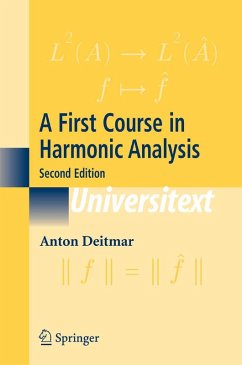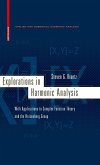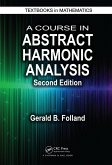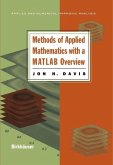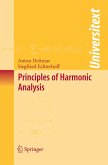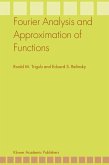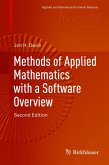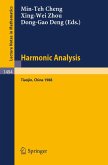"This lovely book is intended as a primer in harmonic analysis at the undergraduate level. All the central concepts of harmonic analysis are introduced using Riemann integral and metric spaces only. The exercises at the end of each chapter are interesting and challenging..."
Sanjiv Kumar Gupta for MathSciNet
"... In this well-written textbook the central concepts of Harmonic Analysis are explained in an enjoyable way, while using very little technical background. Quite surprisingly this approach works. It is not an exaggeration that each undergraduate student interested in and each professor teaching Harmonic Analysis will benefit from the streamlined and direct approach of this book."
Ferenc Móricz for Acta Scientiarum Mathematicarum
This book is a primer in harmonic analysis using an elementary approach. Its first aim is to provide an introduction to Fourier analysis, leading up to the Poisson Summation Formula. Secondly, it makes the reader aware of the fact that both, the Fourier series and the Fourier transform, are special cases of a more general theory arising in the context of locally compact abelian groups. The third goal of this book is to introduce the reader to the techniques used in harmonic analysis of noncommutative groups. There are two new chapters in this new edition. One on distributions will complete the set of real variable methods introduced in the first part. The other on the Heisenberg Group provides an example of a group that is neither compact nor abelian, yet is simple enough to easily deduce the Plancherel Theorem.
Professor Deitmar is Professor of Mathematics at the University of T"ubingen, Germany. He is a former Heisenberg fellow and has taught in the U.K. for some years. In his leisure time he enjoys hiking in the mountains and practicing Aikido.
Dieser Download kann aus rechtlichen Gründen nur mit Rechnungsadresse in A, B, BG, CY, CZ, D, DK, EW, E, FIN, F, GR, HR, H, IRL, I, LT, L, LR, M, NL, PL, P, R, S, SLO, SK ausgeliefert werden.
"This lovely book is intended as a primer in harmonic analysis at the undergraduate level. All the central concepts of harmonic analysis are introduced using Riemann integral and metric spaces only. The exercises at the end of each chapter are interesting and challenging; no solutions are given. ..." -- Sanjiv Kumar Gupta for MathSciNet
"... In this well-written textbook the central concepts of Harmonic Analysis are explained in an enjoyable way, while using very little technical background. Quite surprisingly this approach works. It is not an exaggeration that each undergraduate student interested in and each professor teaching Harmonic Analysis will benefit from the streamlined and direct approach of this book." -- Ferenc Móricz for Acta Scientiarum Mathematicarum
From the reviews of the second edition:
"This is the second edition of a beautiful introduction to harmonic analysis accessible to undergraduates. ... The first part deals with classical Fourier analysis, the second provides the extension to locally compact abelian groups, and the third part is concerned with noncommutative groups." (G. Teschl, Internationale Mathematische Nachrichten, Issue 202, 2006)

